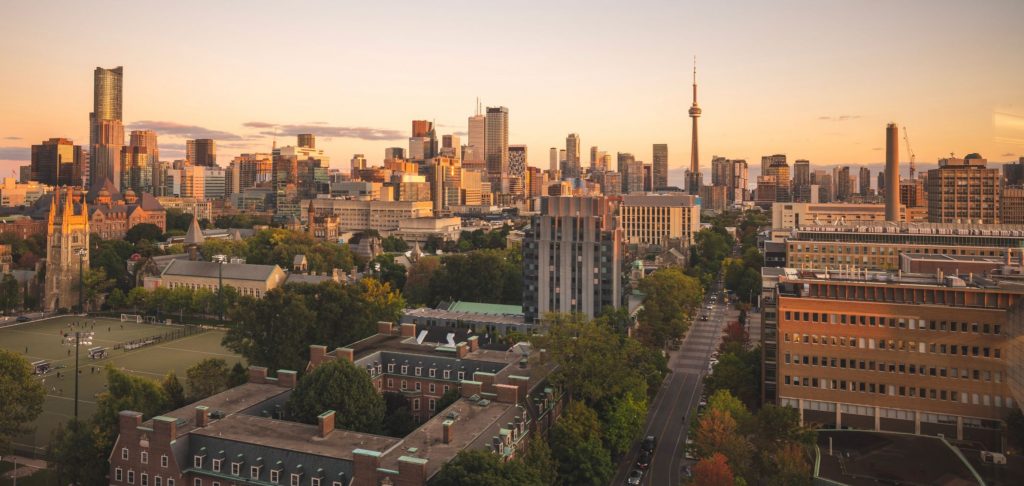
Letter from the Chair
Dear Friends of the Department of Germanic Languages and Literatures,
It was a delight to see students and faculty begin return to the Department and our beautiful campus in 2021-22 and we look forward to even more in-person events and activities becoming possible this academic year. My thanks to everyone for their positivity and support throughout this challenging time.
During the past academic year, the Department was engaged in a comprehensive cyclical review mandated by the Province of Ontario. The consultation process encompassed faculty, graduate and undergraduate students, colleagues in our administrative offices and faculty from other units and programs. The nearly 200-page final document submitted in spring 2022 reports on everything from curriculum and learning objectives, student satisfaction and course enrolment, our success in securing external grants and research output, to faculty and administrative structure and our physical spaces. A concluding ‘Future Directions’ section identifies in broad terms a course for renewing our programs and activities on a number of levels. In the meantime, we’ve received the comments of our external reviewers, senior colleagues at institutions in Canada and abroad. In addition to praising our wonderful students, strong undergraduate and graduate programs, pioneering outreach initiatives and the performance of our teachers and researchers, the esteemed reviewers point to areas that we will need to address to adjust to a changing academic and social landscape. I’m extremely excited about the opportunity to collaborate with colleagues and students to envision new ways of meeting our educational mission.
As always, our students were extremely active and productive this past year! Courageous undergraduates mounted a performance of Heinrich Hoffmann’s Struwwelpeter in an edgy adaptation by Prof. Erol Boran. If you noticed a fresh new vibe on Instagram, it’s thanks to Hana Wernick and Shantel Watson, who curated the account with an eye toward engaging more undergraduate students. Tanya Hermeniuk and Owen Meunier joined forces with Vivian Chau to help run our innovative Multilingual German Lab that offers supports to second (and third) language learners. The Department is honoured to administer awards founded by friends of German and Yiddish Studies: Tanya Hermeniuk and Owen Meunier were recognized with the German Department Excellence Award, sponsored by Ms. BeeBee Mukherjee; Alesha Bailey received the Helmut Krueger Undergraduate Scholarship in German; Graeme Myers received the Sara Friede-Miransky Memorial Bursary in Yiddish Studies; Chao-Sheng Hong received the Fania and Aron Fainer Prize in Yiddish; Desiree Elbaz received the Anne (Medres) Glass Memorial Scholarship in Yiddish; Avram Stern received the Percy Matenko Scholarship in Yiddish; Vivian Chau received the Hermann Boeschenstein Memorial Scholarship; and Mikaela Kennedy was distinguished with the Prize of the Ambassador of Switzerland to Canada.
Our graduate students were no less successful. PhD candidate Laurence Cote-Pitre is the recipient of our newly established Teaching Excellence Award that recognizes outstanding teaching and dedication to developing pedagogical skills. Veronica Curran and Sophie Jordan are the first and highly deserving recipients of our Graduate Research Award. In the doctoral stream, William Ohm successfully defended his doctoral thesis, “The Sword of the Immanent God: Heinrich Heine’s Sensualist Style,” which was written under the supervision of Professor Willi Goetschel. Esteemed Heine scholar, Prof. Robert Holub, served as the external assessor. Vardit Lightstone also passed her final oral exam in August with the thesis, “Performing Migrant Identity: Canadian Yiddish Personal Narratives,” co-supervised by Professors at the U of Toronto and Dani Shrire at Hebrew University. Vardit now carries the additional distinction in the history of our graduate program as the first candidate to earn a PhD with a Yiddish concentration. She hasn’t skipped a beat since the oral exam, having just accepted the two-year Kaplan Postdoctoral Fellowship in North American Jewish History and Culture at the Joseph and Rebecca Meyerhoff Program and Center for Jewish Studies at the University of Maryland.
We welcome several new graduate students: Jacob Hermant has enrolled in our PhD program with a Yiddish emphasis following completion of an MA from our neighbouring unit, Comparative Literature. Jacob is already a familiar face as a former iPRAKTIKUM intern with the Ontario Jewish Archives. Meanwhile the MA program has gained three new enrollees: Savannah Bein, with a B.A. in Environmental Studies and German from U of T; Elizabeth Coulter, who also studied German and English at U of T; and Hannah Wickman, who joins us with a B.A. in Religious Studies from Mt Allison University. As our new arrivals settle into their studies, others are completing their degrees and embarking on new adventures. With MA degrees in hand, recent graduate Nathalie Röthlisberger is currently learning Italian and completing a research assistantship before embarking on new adventures in her Swiss homeland, while Jingyi Yang has joined the doctoral program at the Medieval Studies Centre, where she will continue her studies with Markus Stock.
Among our continuing cohorts, it’s a delight to be able to confirm that Maria Harutyunyan, Eli Jany and Miriam Schwartz all passed their Qualifying Examinations with flying colours last Spring as the final hurdle before embarking on the thesis. As well, several students held public talks in our department to share emerging research projects and gain feedback: John Evjen on ‘Beyond Lack and Excess: Human-Nonhuman Kinships in Contemporary German Fiction,’ Somaia Mostafa on the question of Medieval Orientalism, and Virginia Shewfelt with the project, ‘Adapted Memory: German-Jewish Holocaust Narratives on Stage, Page and Screen.’ These diverse topics, as well as the activities of research groups supported by our recently established Collaborative Research and Creativity Fund, continue to enrich the intellectual dialogues taking place within supervisory committees and across our graduate program.
Among the many accomplishments of our faculty, I am pleased to note the publication of John Zilcosky’s latest book, The Language of Trauma: War and Technology in Hoffmann, Freud, and Kafka (University of Toronto Press), which appeared too late to be mentioned in our last newsletter. John also enjoyed major recognition with a prestigious Guggenheim Fellowship for his ongoing work on the cultural history of wrestling from antiquity to Hulk Hogan. Markus Stock, currently Principal of University College, was promoted to full professor, and Hang-Sun Kim was distinguished with the Arts & Science Outstanding Teaching Award. Christine Lehleiter is on leave this year with a Humboldt Fellowship to pursue her work in neurohumanities and literature. Congratulations are due to Angelica Fenner for securing a SSHRC Insight Development Grant with collaborator Hester Baer for film historical research on the experimental Ulm School of Design (1962-68), and John Noyes received SSHRC Connection Grant funding for a workshop being organized by his Planetary Humanities group. Willi Goetschel offered the inaugural lecture in the 2021-22 Vanderbilt Modern Philosophy series, and Anna Shternshis kept up a furious pace with over 20 public lectures and continued international attention to her Yiddish Glory project. I was pleased to see the continued development of Critical Zones, an environmental humanities network, that I co-founded and that will collaborate with the School of the Environment on the 2023 Beatrice and Arthur Minden Symposium on the topic of ‘Urban ecologies: imagining the environmentally just city’. The Department is also taking a lead role in the campus-wide Global Languages Initiative that hosted lectures and a first symposium, ‘Languages towards a Planetary Education,’ last year.
Among the new faces this fall who will contribute to the intellectual life of the Department, we welcome our new DAAD guest professor, Dr. Azadeh Sharifi, who arrived in Winter 2022 and also teaches in the History department, with a research emphasis on postcolonial and decolonial theatre studies. Visiting scholar Dr. Oliver Grill (Ludwig-Maximilians-Universität München) is spending the Fall at U of T on research leave from his home institution and recently held a lecture on ‘Abenteuer und Gesellschaft’.
There is a new leadership team for the upcoming academic year during my sabbatical, which began on July 1st. Angelica Fenner has graciously agreed to step in as Acting Chair following a research and study leave. Angelica of course brings very recent experience to the role as long-time Associate Chair, Graduate. John Noyes will provide valuable continuity by extending his term in that capacity, and Hang-Sun Kim will serve as Associate Chair, Undergraduate, upon returning from a post-promotion sabbatical. Hang-Sun will be able to draw on her experience filling in for Erol Boran a year ago. I would like to thank Erol for his service this year during an arduous self-study process and a very difficult time to be an administrator in general. Finally, we are very fortunate that Stefana Gargova will join us once again in the role of Language Coordinator, providing another strand of continuity and experience. I look forward to learning from these wonderful colleagues when I return in July 2023 and wish this leadership team all the best for a successful year.
We rely on our vibrant network of friends, colleagues, emeriti, and alumni to deliver impactful activities and experiences for the students who entrust us with their education. Donations remain crucial to the creation of undergraduate and graduate scholarships that enable us to attract the brightest students to the Department and to reward their excellence in scholarship and contributions to the community. We appreciate your generous support and invite you to attend our social and scholarly events and remain connected through our social media channels.
Stefan Soldovieri
Chair of Germanic Languages & Literatures, Associate Professor of German
Struwwel-Covid: An Exercise in Adaptation and Adaptability
by Erol Boran’s Ghostwriter
When, shortly before the winter semester began, the university announced that classes would remain online for at least part of the term, the student actors of GER 340H “German Theatre Production” put their improvisation skills to the test. Despite the challenges that lay ahead, they were unwavering in their commitment to creating an original piece. And when a live performance proved impossible, they quickly pivoted to film – a first for us all.
I decided to adapt the classic 19th century German storybook Der Struwwelpeter for a contemporary Canadian audience, and together with students settled on three stories that we could develop in small groups into individual scenes. Intended to impart proper behavior, these short stories warn children to watch where they’re going, avoid playing with matches, and never suck their thumb, lest a pair of giant scissors mysteriously appear and (spoiler alert) chop it right off!
Amused yet bewildered by these grotesque tales, the students set to work transforming them into more relatable short scenes. A brief workshop in script-writing yielded promising first drafts, which I revised and incorporated into a frame tale about a pandemic party organized by some rebellious covid-denying teenagers. A diabolical MC known as Der Struwwel appears periodically to whisk the sleeping teens into haunting nightmares. They awake to discover the error of their ways, linking the moralizing messages of Heinrich Hoffmann’s storybook with the messaging behind today’s public health restrictions.
With no background in acting or film-making and performing entirely in a foreign language, the students demonstrated ingenuity as they moved from online class discussions to masked in-person rehearsals, culminating in a marathon weekend of filmmaking in my basement. When one of the lead actors contracted Covid, we resorted to body doubles and made use of my four-year-old’s Spider-Man mask! As the obstacles mounted, students displayed remarkable creativity. Ultimately, they were delighted that their efforts yielded a 20-minute film, a time capsule of this unusual era and a testament to the power of adaptation and adaptability. Check out our trailer and the performance.
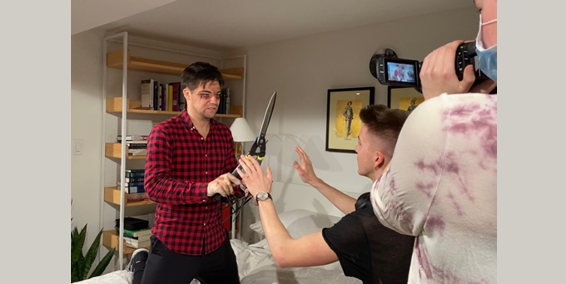
Undergraduate Profile: GER – A place to be me
By Jordan Stewart
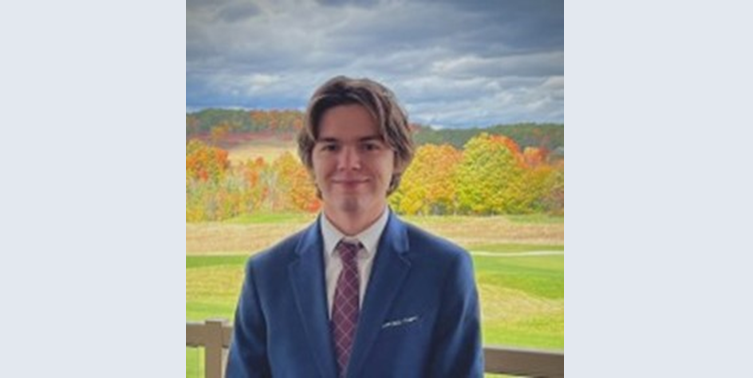
Despite coming from a small town in the valence of the big city, my arrival at the University of Toronto was admittedly overwhelming. I was away from home for the first time, leaving my family, friends, and most importantly, my dogs. To accompany these feelings of loneliness, the large class sizes of a first-year seminar in Economics or Calculus gave me the feeling of “being just a number”.
On a whim, I selected GER100 to fulfill an elective. One of my pitfalls is my nosiness, or, as I prefer to label it, my curiosity. Coming from a family of half-German ancestry, whenever my dad, my aunts, and my grandparents discussed something that they didn’t want the children to understand, they reverted to German. I found this excruciatingly frustrating and promised myself during many Christmas and Easter dinners that one day I’d be able to understand what they were saying.
Although my German skills improved (I had to translate my dad’s broken Schwabisch to Berliners when visiting there in 2019), to me, my German Minor means much more than hours of determined academic effort. When I look back at my degree and see this denotation, the first thing I think about is my “unofficial” German family – the four years’ worth of professors and colleagues who I established connections with through the small class sizes in the program. Through the ups and downs of my undergraduate career – the late nights spent studying, the coming to terms with who I identify as, and the uncertainties of where my next step would take me – I always had someone in my circle of professors and peers in the German Department who were willing to take 5 minutes to listen to me.
If I could offer one piece of advice, perhaps to a prospective student deliberating over their potential program of study or an elective, or even a student experiencing the “fun times” that come as a university student in late-November, I’d wish to remind them to be patient and really enjoy the process. To me, the German program is so great because it allows you to develop those close connections that you will hold with your peers of the next four years. The challenges will come – you’ll be faced with difficult vocab lists and complex grammatical structures. However, learn to love the process. Learn to love working with your classmates and building these connections. For the friendships you make in those first few classes of GER100 could be the ones you hold for life.
The Silver Lining
by Prof. Stefana Gargova, Language Coordinator

Online learning – engaging, flexible, equitable? Klar doch!
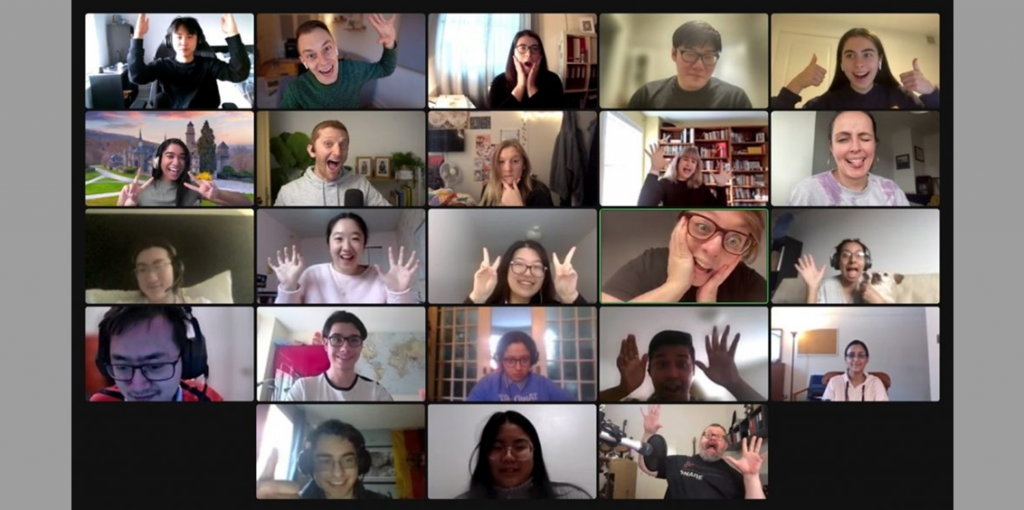
For most of us, it’s been two long years of changes, transitions, and pivoting, all bolstered by high levels of anxiety-inducing uncertainties. Now that the memory of the eerie quietness in the first pandemic weeks begins to fade, it seems fitting to look back and reflect, re-think and re-evaluate. What did we learn? What can we take with us moving forward?
Being a perpetual optimist, I found myself feverishly searching for the silver lining in all the tangled cords, blurred zoom faces and unintentionally muted microphones at the dawn of online teaching. Previously held (mis)conceptions about online learning had a firm grip on me – educators unanimously considered digital language classes to be impersonal, lacking in efficiency and human contact, with students often remote and disengaged. Online language courses, although sporadically offered at some universities, were mostly seen as second-class and a quality compromise. Yet, here we were, propped in front of our computers with no alternative. We had to make it work.
As available video conferencing software swiftly improved and users inevitably became savvier, the field felt more levelled, allowing us to focus on content and new practices, rather than video quality. One of the first hurdles I wished to tackle was the issue of disengagement, so often brought up in connection to online teaching. With the computer screen speckled with the many faces of my students, it struck me that I no longer needed to be the sole teacher in my Zoom class – suddenly, the doors for guest appearances and collaborations were as wide open as never before. Guest lecturers, artists and field experts no longer needed expensive and environmentally taxing flights to come and engage with my students. The flexibility allowed for endless possibilities. And so, our GER370 German Business Culture students had a chance to meet and learn from Jochen Mai, book-author and founder of the popular karrierebibel.de focused on education and career in the German speaking countries. Our beginner German learners had tons of fun when the Easy German team – owners of the most popular YouTube German learning channel – took over our classroom and entertained them with live music and interactive games. Marje Zschiesche-Stock, a Goethe-Institute powerhouse, took the GER200 students on a cultural trip to Hamburg and Germany’s northern provinces. Our in-class engagement with the global community did not stop there. This spring, we piloted a collaboration with TalkAbroad that left our students raving. This educational platform connects language learners with conversational partners from around the world. Our German students had a chance to hone and practice their communicative skills during lively, authentic, real-time interactions.
While online learning at the beginning of the pandemic revealed and exacerbated stark inequalities, the current availability of an online stream of courses along with the traditional in-person offering, affords for an unprecedented flexibility. Students with family or job obligations, those enrolled at remote campuses or depending on long commute hours, adult learners and those dealing with social anxiety no longer need to compromise between life-balance and high-quality education, proving that online can and does promote equity and diversity in the classroom. The evidence is in this year’s high enrollment numbers and stellar student feedback. It is safe to say that online learning has shed the dusty reputation of the pre- and early pandemic days and now offers flexible, exciting new ways to learn, experience and engage with local and global communities. Yes, it’s been a learning curve indeed, but the future looks bright again.
iPRAKTIKUM: A Year of Records and Returns
by Elisabeth Lange, Doctoral Candidate
For iPRAKTIKUM, the Internationalization and Experiential Learning Initiative housed in the Department of Germanic Languages and Literatures, 2022 was a year of success in many regards. Launched for the first time in 2017 by project leads Stefan Soldovieri and Helena Juenger, the internship initiative celebrated its 5-year anniversary this September. But there are more reasons to celebrate: following a COVID-related dry halt to in-person placements, the iPRAKTIKUM team could finally send undergraduate students overseas again in summer 2022 for rewarding work experiences with our partners in Freiburg and Berlin. With a record number of six students participating in our so-called futurGenerator Program, we were able to yet again cooperate with four of our most valued partners: Die Agronauten; zusammen leben; Innovation Academy; and NOCA mobility.
Owen Meunier and Alesha Bailey teamed up with MotionLab Berlin partners Anna Buchmann and Christoph Neye in developing NOCA Mobility (=No Car), a new startup that will offer a digital marketplace for the cycling industry. As a part of their placements, Owen and Alesha participated in an EU-funded accelerator program that offers workshops and other supports for startups. In Freiburg, Edward Li worked in a hybrid format for the Innovation Academy, an organization dedicated to environmental education. Julie Souchet and Sara Green spent two months working for the Freiburg migrant engagement organization zusammen leben e.V., and Renee Asoro helped our regional food security partner, Agronauten, gear up for the annual Agrikultur Festival in July.
While these four non-profit organizations are engaged in sustainability-related projects addressing environmental awareness, food and farming culture, mobility and urban planning, and social integration, our interning students do not necessarily need to major (or minor) in related fields to benefit from these internships. Whether organizing a festival, pursuing research or educational work, producing online content, market analyses, or preparing community meals, the work possibilities are as diverse as the students’ backgrounds and fields of study. This most recent cohort of interns benefitted not only from newly learned skills and navigation of professional responsibilities in a second language, but also returned to Canada grateful for these meaningful encounters and the immersion in a new culture.
When it comes to our German and Yiddish in the City Partnership Program, we recently sent four eager undergraduate students to work with the University of Toronto Schools and the Bialik Hebrew Day School, both here in the GTA. These students are keen to pass on their knowledge and passion for German or Yiddish to high school and elementary school students and will now experience the classroom from a teacher’s perspective. This coming year we are very pleased to welcome a new partner school to the fold. Thanks to the efforts of the indomitable Jimmy Steele, German language instruction is being reintroduced at Harbord Collegiate Institute, just down the road!
We look forward to finding out what 2023 has to offer and in the meantime strive to expand our partnerships in both Germany and the GTA.
For more information and updates, please visit our website:
https://german.utoronto.ca/ipraktikum/
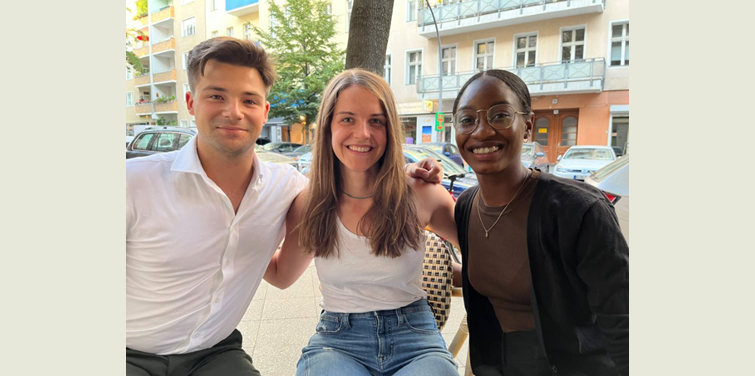
Graduate Perseverance During the Pandemic
By Prof. John Noyes, Associate Chair of Graduate Studies
As we slowly, tentatively edged our way out of pandemic teaching and learning conditions, with virtual teaching one week and in-person classes the next, then back to virtual again, graduate students in the Germanic program continued to pursue their research while negotiating some very trying teaching conditions. Most of the students in the PhD program are also instructors responsible for teaching their own classes while deeply engaged in their coursework and the writing of their dissertations. The dedication and persistence this involves is admirable, and as a department we are grateful for their ongoing commitment to the discipline. And what a fine job they are doing. Laurence Cote-Pitre was the recipient of the department’s Teaching Excellence Award that recognizes outstanding teaching in all of its facets as well as dedication to developing pedagogical skills. Thank you for your contributions to the language program and for taking the time to assemble your fine application, Laurence!
In the Yiddish program, we continue to move from strength to strength. PhD students Eli Jany and Miriam Schwarz successfully completed the Qualifying Examination in the Yiddish field! It will be exciting to see your thesis projects develop with the support of your committees and the Departmental community. And we were very pleased to welcome Jacob Hermant to the PhD program. Jacob is interested in Jewish mysticism and philosophy, learning from and expanding it to look toward a new analysis of nature and climate in Jewish literature in order to unearth a vitalist, living impulse in the Jewish literary tradition that can provide tools for a Jewish understanding of, and response to the climate crisis.
In the German Program, Maria Harutyunyan has passed the Qualifying Examination as the final hurdle before embarking on her dissertation.
Congratulations also to the graduates of the PhD program. Will Ohm successfully defended his doctoral thesis, “The Sword of the Immanent God: Heinrich Heine’s Sensualist Style” in May, under the supervision of Willi Goetschel. Special congratulations go to Vardit Lightstone on having successfully defended her thesis – the first PhD in Yiddish in the Graduate Program. Vardit’s dissertation bears another distinction, since it was written under the Joint Education program with Hebrew University, supervised by Anna Shternshis and co-supervised by Dani Schirer (Hebrew University). Her dissertation was titled: “Performing Migrant Identity: Canadian Yiddish Personal Narratives.”
Veronica Curran and Sophie Jordan were the first and highly deserving recipients of our Graduate Research Award. The award was established to acknowledge outstanding scholarly work among students in the program. Veronica Curran was awarded for her work on the influence of Jakob Michael Reinhod Lenz on the theatre of Georg Büchner and Bertolt Brecht. Her paper, “What is Radical? Büchner and Brecht read Lenz,” will appear in the January 2023 special issue of German Life and Letters. In it, she discusses what she calls the kinship that ties these writers together in a common radical realist project. Sophie Jordan was awarded for a paper written in a Directed Reading Course under the supervision of Markus Stock and presented at the German Studies Canada annual conference in May 2022. Sophie is working on a 16th century diplomat who traveled to Istanbul and recorded his observations. His records, as Sophie shows, are remarkable for “the author’s perspective on migration in and out of the Balkans as well as the intercultural exchanges which resulted from the Ottoman presence in this region.”
Mark Morrison-Reed was awarded the German Studies Canada Prize for the Best MA Thesis in German Studies (2019 to 2021) for his MA paper “The Trail He Had to Follow: The Odyssey of Vincent O. Carter” supervised by John Noyes. Mark’s thesis deals with the writing of Vincent O. Carter, who was born in Kansas City in 1924 and died in Bern, Switzerland in 1983. Carter wrote two major books, The Bern Book: A Record of a Voyage of the Mind (completed 1957, published in 1973) and Such Sweet Thunder: A Novel (completed 1963, published 2003). In choosing to live in Bern, Carter chose a life where he was always conspicuous as a black man, where he had to face racial prejudice or ignorance, or both, but where he, like so many other black Americans of his generation, sought an alternative life to what the USA had to offer. Mark sees the Bern book as dominated by the attempt to conduct what Carter calls “a social scientific study of the city Bern or of the Swiss nation.” What Mark Morrison-Reed’s readings bring to Carter’s books is a deep understanding of what inspired this innovative and little read works as well as a compelling case for why we need to pay more attention to them.
Graduate Profile: Forging Kinship with Other Animals in German Literature
By John Evjen, Doctoral Candidate
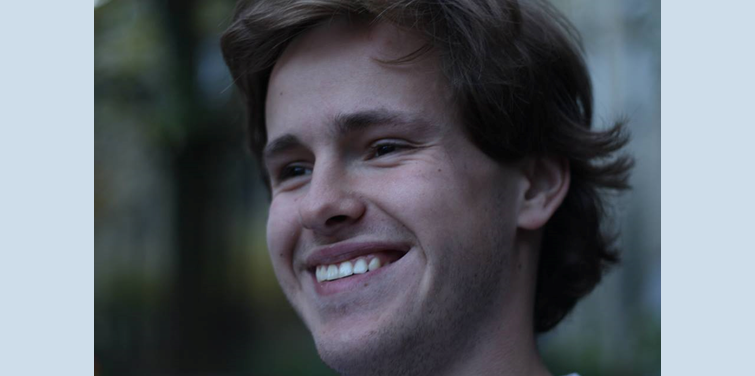
As the joke goes, anyone who lives in Toronto is not from Toronto, myself included. I grew up in the prairies just outside of Edmonton in a small farming community. Being close to animals my whole life challenged me even from a young age to think about how they feel or what they mean. As a young reader, I found that most stories contained animals that were only symbols. Scholars maintain that around 1900, animals started to change among writers such as Franz Kafka, who portrayed animals in his writing as beings on their own terms. My research looks at contemporary German novels and their literary portrayals of animals and how humans forge kinships, that is create new relationships, with other animals in literature and beyond.
The 21st century has been marked by the sixth world extinction event, the destruction of many animal habitats, and industrialized consumption of meat worldwide. This is all happening at a time when animals seem to be accumulating more rights than ever. In 2020, in Ontario, legislation was passed that permitted any bar or cafe owner to allow dogs into their premises if there was no food prepared in the seating area; in 2008, Spain granted great apes fundamental human rights; in grocery stores around the world, vegetarian and vegan alternatives have become readily available. Animals face a paradox of both mass inclusion and death as they continue to gain more rights. This marks an interesting tension that German literature of the 21st-century is currently interrogating.
The texts in my dissertation attribute qualities to other animals that are otherwise perceived as exclusive to humans, such as language. In doing so, these novels alter the way we look at animals and how we form relationships with them. Such literature interrogates our conceptualization of what it means to be an animal and how the reader can create new relationships with other animals to avert further climate catastrophe. My project has benefited greatly from the expertise of my supervisor, Professor Angelica Fenner, and from Professor Stefan Soldovieri, who has led a “literature lab” that has given me a platform to share my research with like-minded colleagues.
What My Yiddish Students Have Taught Me
By Eli Jany, Doctoral Candidate
As the academic year comes to an end and the negative signs disappear from my weather app, it feels like spring has finally arrived. The robins are chirping, the crocuses blooming, the pollen count rising, and my vague sense of dread about comprehensive exams evaporating along with the last of the roadside snirt. Thinking back on what I’ve learned during these first two years of my PhD, I owe a great deal of gratitude to the professors, teaching assistants, fellow students, and countless academics whose work I’ve read in a late-night panic. I also appreciate the knowledge and insights my students have shared with me.
I’ve now had the opportunity to teach both halves of first year Yiddish (GER260) and was lucky enough to have a fantastic group of students each time. One of the coolest things about teaching here has been the huge diversity of linguistic knowledge that students bring to the class. Our class has included students who speak Arabic, Cantonese, French, German, Greek, Hebrew, Hindi, Italian, Mandarin, Portuguese, Russian, Serbian, and Spanish (and that’s just 14 people!). We’ve had students who remember some Yiddish from their childhoods, students who’ve never spoken a word of Yiddish before, and students who are learning a new language at an intensive level for the first time. Our class discussions have benefited greatly from the connections that students make to other languages they know, as well as their insights into effective language learning strategies. Their questions and comments have pushed me to think more carefully about points of connection and discordance between Yiddish and other languages, and from a pedagogical standpoint, to convey concepts as clearly as possible to students with very different language-learning backgrounds.
I have also been so impressed and inspired by students’ creative approaches to their coursework, and in particular their end-of-term projects. Students have drawn on their own skills and interests in areas ranging from web design to theatre history to puppetry to literary theory to create engaging and informative work that showcases both their Yiddish competence and their other talents. They motivated me to try to branch out in my own approaches to teaching and curriculum design, including an attempt (of admittedly questionable success) to integrate finger puppets into a lesson, and efforts to incorporate more multimedia-based assignments into the course. A sincere thank-you to all my students for your enthusiasm and generosity!
Postdoctoral Fellow: Herder’s Engagement with History and Fiction
By Catherine Girardin
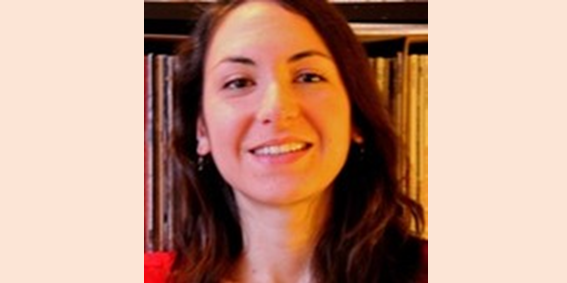
I left Canada in 2009 during my BA in Theatre Studies for a one-year study exchange in France and finally came back in 2020 as a SSHRC postdoctoral fellow at the U of T. I got involved with eighteenth-century German theatre and aesthetics during my second MA in Theatre Studies and started learning German. I began my PhD with the idea of working on the relationships between history and theatre, or more specifically, on the different mindsets called upon when writing history and writing theatre. I soon realized that these issues concerning representation, fiction, history, and culture at the same time were also part of Johann Gottfried Herder’s preoccupations. The next step in my reflection was to ask myself: What about Herder’s own way of dealing with this complex relationship between history and fiction in practice? Did Herder write theatre plays himself, and if so, how do they differ from his historical and philosophical-historical writings? What can his theatrical writings tell us, through a singular epistemological channel, about his philosophy of history and his conception of historiography, and, maybe, vice versa?
The first stepping stone in my PhD project was my DAAD-funded research stay at the Staatsbibliothek in Berlin, where I had the thrilling privilege of reading and transcribing Herder’s unpublished manuscripts related to theatre. The second stepping stone was my becoming a member of the International Herder Society, where I had the chance to share my reflections with Herder scholars from all over the world. The third stepping stone, leading the way to my post-PhD phase, was my encounter with Professor John Noyes, who agreed to become my supervisor for a SSHRC postdoctoral fellowship.
His support and valuable advice concerning my project gave me the final and decisive push to engage in the ambitious endeavor of producing a critical edition of Herder’s complete dramatic works. My experience as a postdoctoral fellow at the Department of Germanic Languages and Literatures played a crucial role in the smooth running of this project. Even though my postdoctoral fellowship was marked by the virtual settings of the pandemic, I always felt the presence of a whole team behind me, available, professional, resourceful, and human. The Department and Professor John Noyes made this project possible not only because they share these qualities, but also because they acknowledged the possibility of this critical edition becoming a reality, and most importantly gave me the space and time to properly research.
Alumna Profile: Notes from the Field
By Dr. Maria Euchner, Faculty Fellow in the Humanities, University of King’s College
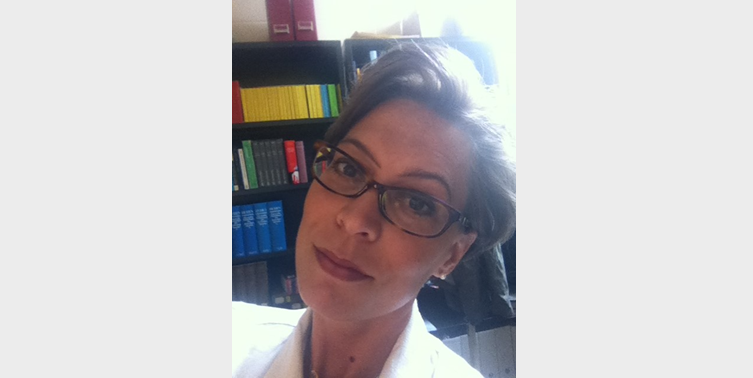
Following completion of my PhD, I taught in Toronto and at the University of Calgary, then relocated to London, UK, to work as a translator and editor, before moving to Scotland for a position at the University of Edinburgh. I returned to the European continent to take up another M.A. (in Museum Studies) in Würzburg, Germany. In 2019, I felt the pull to head back to Canada for a one-year position at Dalhousie University in Halifax, and am currently in the lucky position to be teaching in the Foundation Year Program (FYP) at my alma mater, the University of King’s College, where this year I’ll be lecturing on Friedrich Schiller’s Die Räuber, as well as contemporary art. This great books program exploring philosophy, literature, drama, history, and natural and social sciences marked the beginning of my university experience in 1995, and definitely shaped and cemented the interdisciplinarity that informs my scholarly interests and approaches to this day. This interdisciplinarity also equipped me to co-teach a course on Baroque theatre, opera, and art in the Czech Republic in the summer of 2022.
In current research, I am exploring concentration camps during the Third Reich as sites of cultural production in a comprehensive project on political defiance in the Austrian composer Viktor Ullmann’s three extant operas, establishing, among other things, a theoretical framework for Ullmann’s anthroposophically informed aesthetics. The project will elucidate the political nature and power of music and art – and thus, their topicality – both during the Third Reich and as they play out today. I recently published a book chapter on Der Kaiser von Atlantis oder die Tod-Verweigerung (1943), an opera Ullmann wrote while interned at Terezín, just before being deported to his death in Auschwitz. I have also begun research on Peter Kien, a Jewish artist and writer who documented many of the inhumane living conditions of the Terezín camp in his sardonic drawings and poetry, and whose fate was the same as Ullmann’s. By publishing my findings in English, I hope to introduce these amazing artists to a wider audience.
Faculty Research Profile: John Zilcosky receives a Guggenheim Fellowship
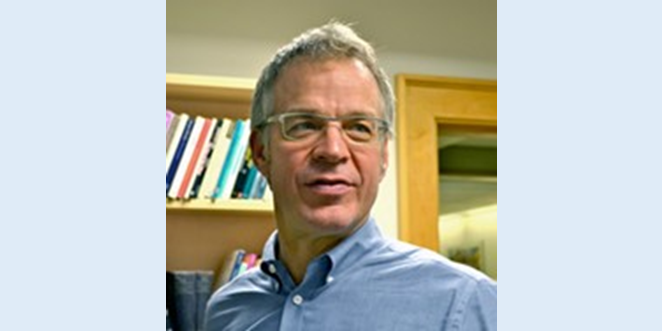
Congratulations to John Zilcosky, who has been awarded a Guggenheim Fellowship to help him wrestle with his next big project. With the help of the Fellowship, Zilcosky will be able to devote time to writing his next book, Wrestling: A Cultural History. In it, he attempts to answer big questions: Why do we wrestle? And why was wrestling humanity’s first sport? He will explain why wrestling is not only humankind’s oldest sport but also its most significant. The book will trace the history of grappling from early civilizations and myths; through the classical, Renaissance and modern eras; all the way to today’s “pro” wrestling. It will explore wrestling’s presence in Indigenous cultures and also women practitioners — from the Greek goddess, Palaistra, to today’s Gorgeous Ladies of Wrestling (GLOW) television series. And it will delve into the “erotic violence that is always just beneath wrestling’s surface.” “What a thrill!” says Zilcosky. “This is a labor of love, returning me to my youth as a high school and U.S. collegiate wrestler. It’s exciting that the Guggenheim Foundation finds this project — which connects the histories of sport and of civilization — compelling. Such recognition reminds me of my conversation with the world and injects me with new energy.”
2021-22 Online Speaker Series:
East Germans Reclaiming Black Identities Through Cultural Activism
If Germany, including the former East Germany, is sometimes misunderstood as comprising homogenous populations, the speaker series “East Germany: (Re)Claiming Black Identities Through Cultural Activism,” offered access to more recent historical accounts and public discourses testifying to the continuing influence of the German colonial past and of former East German socialist internationalism. The series gained sponsorship through a grant from the Waterloo Centre for German Studies secured by Prof. Angelica Fenner in the Department of Germanic Languages & Literatures and Dr. Rosemarie Peña, president of the Black German Heritage and Research Association and adjunct professor at the University of British Columbia. The webinar format, which dovetailed with the ongoing BGHRA series, “All Black Lives Matter,” was available to an international public via advance registration on the BGHRA website. Events included a discussion moderated by Prof. Fenner with German filmmaker Ines Johnson-Spain about her autobiographical documentary, Becoming Black (2019), which retraces the journey to recover knowledge of her biological father, who lived in Brandenburg as an international student during the 1960s. Johnson-Spain only learned of her true paternal heritage as a teenager and was able to connect in the 1990s with her Togolese father, who had settled elsewhere in Germany.
Another featured was literary author Olivia Wenzel discussing her debut novel, Tausend Serpentinen der Angst (Fischer Verlag, 2020) with Prof. Jamele Watkins (University of Minnesota), touching upon the novel’s formal innovations and its thematic significance in the context of East German cultural history. A further guest appearance, which received additional support from the DEFA Film Library and the CENES program at UBC, exemplified the importance of oral histories to the ongoing construction of Black German history. Prof. Emily Frazer-Rath (Davidson College) conversed at length with Jeanette Footman and Jeannine Kantara, two women who grew up together with a shared experience of Black Girlhood in the GDR. Their fathers – one from Cameroon and the other from Guinea—had met when sent to the GDR to advance their studies and stayed on after starting families with German women. Footman and Kantara shared stories about their respective families’ move to West Berlin, the challenges of growing up in biracial households, and their growing engagement with initiatives on behalf of Black Germans. Overall, the speaker series benefitted from the online Zoom platform’s capacity to reach a wide international audience that included but certainly also exceeded the realm of academia.
“From the Jewish Renaissance to Life after Auschwitz: Margarete Susman, a Philosopher in her Time”
Professor Willi Goetschel gave a presentation in September on Margarete Susman (1872-1966), who was one of the earliest commentators of Kafka and Franz Rosenzweig as well as the author of one of the first books in 1946 to address the challenge of Jewish life after Auschwitz. However, Susman still awaits recognition as a philosopher in her own right: one of the first 20th century German women philosophers and a public intellectual in the late Imperial and Weimar Germany through the postwar period in the 1960s.
Planetary Humanities for Planetary Knowledge: Toward a New Research Paradigm
The Planetary Humanities project, led by John Noyes in collaboration with Prof. Bo Strath (Helsinki) and Dominic Sachsenmaier (Göttingen) will hold its second international workshop in Cape Town in December 2022. It will continue the work started in the virtual workshop held in June 2021, with participants including Dipesh Chakrabarty, Walter Mignolo and Achille Mbembe. Our initiative wants to open a scope for human agency and human responsibility for its own destiny guided by knowledge produced by the humanities, those sciences engaged in researching humans and their cohabitation on earth. The issue at stake is the human capacity to control and master the future and to outline alternative worlds, with all the attendant shortcomings and risks. The goal is to explore the scope for human agency through language and ideas, the human capacity to build frameworks of interpretation with words, pictures and sound, to mobilize frameworks that steer freely between utopia and apocalypse, to mobilize the hard work and sacrifices required to confront all forms of millenarianism as well as beliefs in mystified anonymous and predetermining forces like the market and technology. New humanities knowledge along these lines means new conceptualizations and new narratives, new discourses about the planet as a shared community with a shared future. This means a conceptual community across language differences with concepts to agree and disagree upon in contentious debates where the contention as such creates community. The project is funded by a SSHRC grant, as well as University of Toronto grants from the Critical Zones Project, the German Department, Comparative Literature, and the Office of the Vice Provost International.
 Department of Germanic Languages & Literatures University of Toronto
Department of Germanic Languages & Literatures University of Toronto


